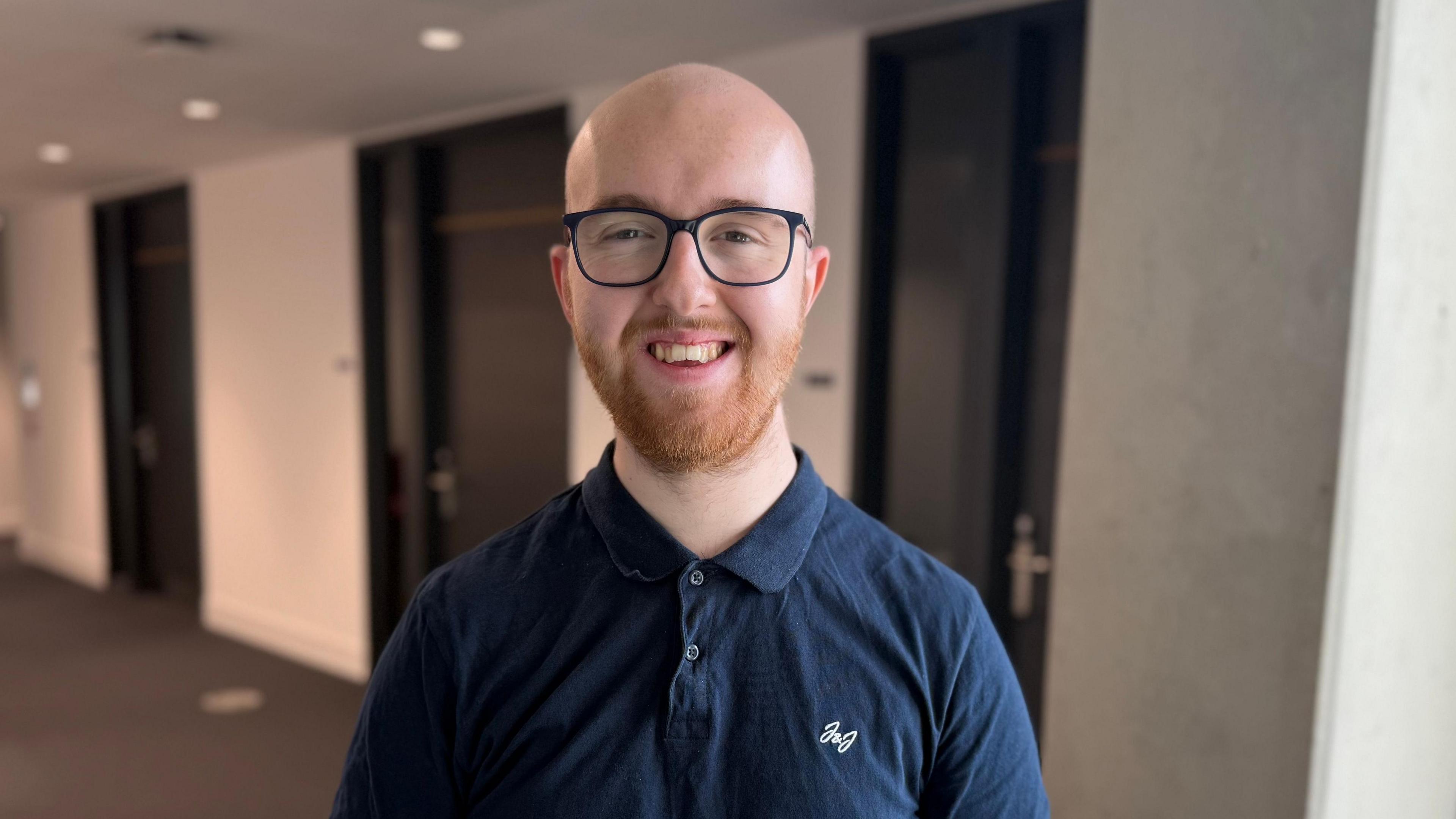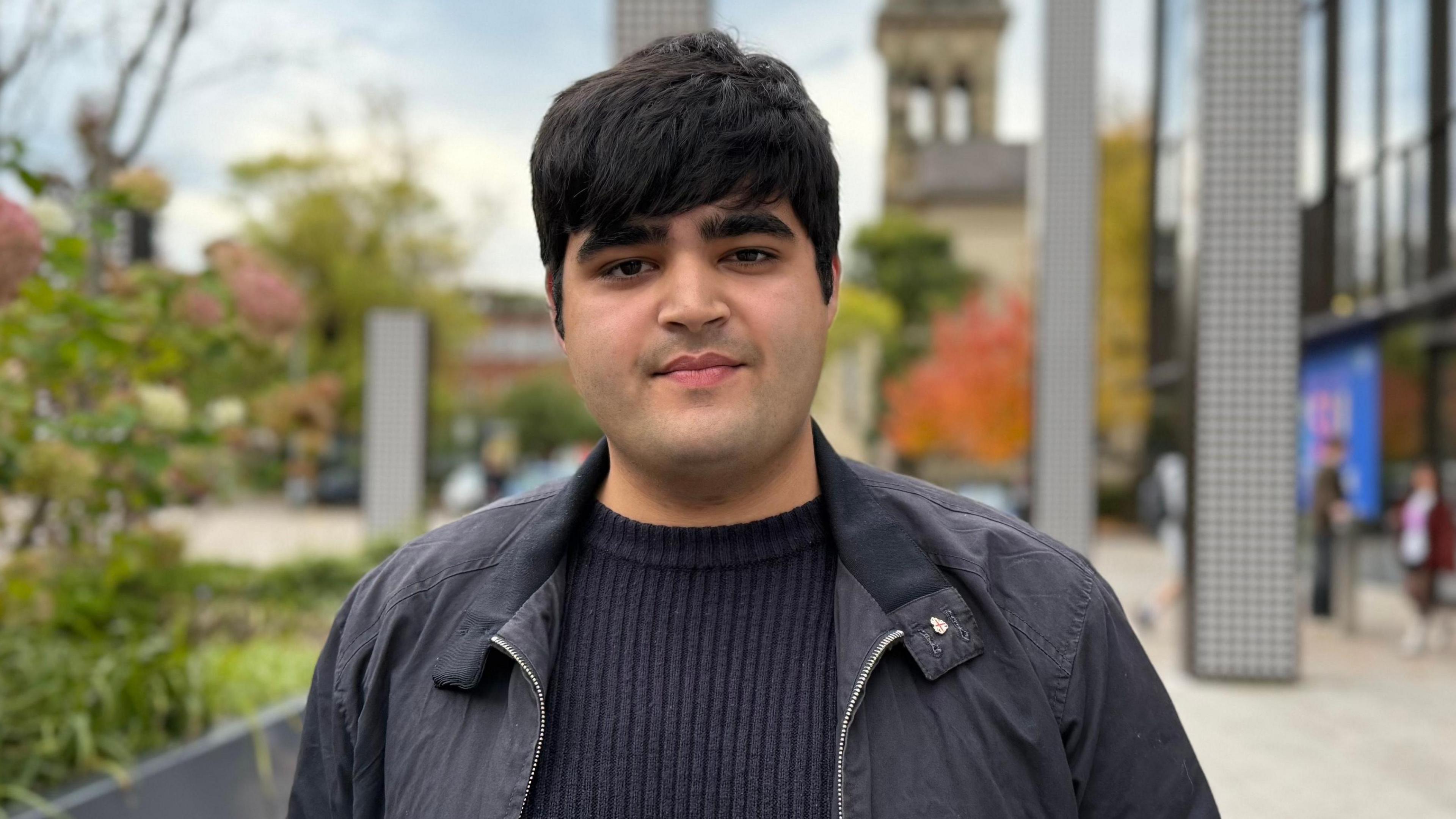Does the Irish president represent people in Northern Ireland?

Ulster University student Peter Wilson is a member of Alliance and Liberal Democrats
- Published
Irish voters head to the polls on 24 October to elect their 10th president with only two candidates, Catherine Connolly and Heather Humphreys, still in the race.
While about 700,000 people in Northern Ireland have an Irish passport, they will not get a say in who is elected as citizens who do not have an address in the Republic of Ireland to vote are not allowed to vote.
But does the Irish president represent them regardless?
Peter Wilson, a student at Ulster University as well as a member of the Alliance Party and the Liberal Democrats, believes the president does represent him.
"I think that for a certain section of the population, people who would see themselves as Irish or Irish citizens, they feel the Irish president represents them in as much a way as the UK monarch represents a large section of the population here who would see themselves as British or British citizens," he said.
"Not everybody feels represented by the Irish president but I think, certainly, it does chime with a lot of people here in Northern Ireland."
Mr Wilson said people who see themselves as Irish relate to the Irish president more than King Charles III.
"In a very complicated and shared place, we need to realise that there are people who don't always see the world in the same way as you do," said Mr Wilson.
But, his view is not shared by everyone.
Student Jay Basra, who is chairperson of the Young Unionists at Queen's University in Belfast and a member of the Ulster Unionist Party, does not think the Irish president represents him.
"I consider myself British, I've a British identity.
"I don't think a head of state for a different country represents me at all, in any way," he said.
In fact, media coverage in Ireland around Humphreys, who is Presbyterian and whose grandfather signed the Ulster Covenant, which opposed Home Rule, has "put him off".
In 1912, half a million unionists, men and woman, signed the covenant pledging to resist any devolution of power from Westminster to a government in Dublin.

Queens University student Jay Basra does not think he is represented by the Irish president
"We have seen the recent debate over Heather Humphreys' [family's] membership of the Orange Order has shown there is a certain dislike to the Orange Order in the Republic and that has put me off that conversation completely," Mr Basra said.
'Informal' NI focus
Irish presidents in recent times have made Northern Ireland a focus of their tenures, like former presidents Mary Robinson and Mary McAleese.
But this is a "more informal role, rather than something the president is constitutionally assigned to do" according to Professor in law and fellow at Trinity College Dublin David Kenny.
This can be done through their speeches and conversations with people "rather than their use of formal powers", Prof Kenny said.
There has been a push by parties such as Sinn Féin and Aontú to bring in laws to extend voting rights to people who do not live in the state.
Changing the rules would ultimately lead to a referendum.
The programme for government, agreed by the two parties and a number of Independent members of parliament (TDs), does not mention a referendum on extending voting rights.
Taoiseach apologises after Gavin's withdrawal from presidential race
- Published8 October
Irish presidential election: Who are the runners and riders?
- Published7 October
While ruling parties Fianna Fáil and Fine Gael vowed in 2020 to extend voting rights outside the state, political scientist at University College Cork Theresa Reidy said they are reluctant to hold any such poll after recent proposed changes to the constitution were rejected by voters.
"I think governments became quite cautious about these types of technical referendums on elements of the political system, especially the sense that voters really need to be persuaded to get these through," she said.
Prof Reidy said a failed referendum on voting rights would also be a "very difficult message" sent to the Irish diaspora.
Voting rights
If there is a push to extend voting rights to Irish voters in Northern Ireland, does that mean the Irish president represents them already?
Legally and technically, the answer is no. The head of state in Northern Ireland is King Charles III.
While Irish citizens in Northern Ireland are technically able to vote in presidential elections, they need to be living in the Republic to do so.
"In that sense, the president is representing Irish citizens in lots of different places because in principle, anyone who has Irish citizenship and then moved [to Ireland] immediately [would] be entitled to vote for the presidency," said Prof Kenny.
While the representation may not be technical, some Irish people living in Northern Ireland may feel the person elected Ireland's next president speaks for them too.